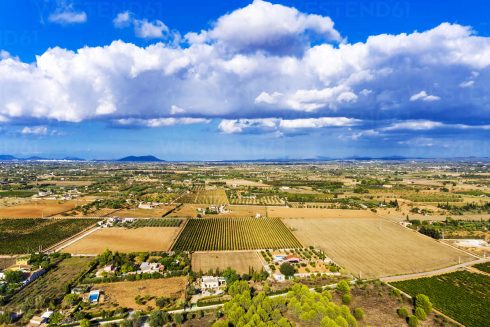Andalucia has five provinces in Spain that are most likely to be affected by Donald Trump’s new agricultural tariffs.
Spain’s southern region accounted for nearly 40% (€1.35 billion) of all of Spain’s exports to the USA in the sector – more than any other – while American exports account for 8.63% of its total foreign sales.
Donald Trump has announced that he will impose tariffs on agricultural imports into the USA beginning April 2.
“To the Great Farmers of the United States: Get ready to start making a lot of agricultural products to be sold INSIDE of the United States,” he wrote on Truth Social, before signing off with ‘have fun!’
READ MORE Donald Trump threatens 25% tariffs on the EU and says bloc is ‘designed to screw the US’

While it is unclear the extent of the tariffs, Spanish producers – who sold €3.5 billion to the USA last year – are already worrying.
Sevilla leads the pack with €653 million in exposure to Trump’s tariffs, representing 15.12% of all the province’s global exports, according to a new report from Gestha, the Spanish Treasury technicians’ union.
The Costa del Sol follows, with Malaga’s 80 export companies facing potential losses of €247.66 million, accounting for 14.83% of its foreign sales.
READ MORE New Trump agricultural tariffs set to hit Spain’s €3.5 billion in exports to the USA
Cordoba (€226.75 million), Cadiz (€108.95 million), and Jaen (€52.24 million) complete the list of the five most vulnerable provinces in Spain, with export dependency on the US market ranging from 10% to over 15% of their total exports.
Olive oil producers face the steepest challenge, as oils and edible fats make up the largest category of agricultural exports to the US at €1.15 billion nationwide.
This represents 33.5% in Spain’s agricultural exports and 13.4% of the total Spanish olive oil exported globally.
Exports to the US are dominated by edible oils and fats, with 18.14 %. The next highest export is meat products, at 13.73%. Prepared food products are 12.91%.
READ MORE Donald Trump announces tariffs on the EU: Bloc warns of ‘firm and immediate’ retaliation
The threat of tariffs comes at a difficult time for this sector. It has already had to deal with drought conditions and price fluctuation in recent years.
Treasury experts are urging both national and regional governments to help the 3,547 affected Spanish companies—including 114 in Sevilla and 120 in Cadiz—find alternative markets for their products.
Although the US market represents just 4.8% of Spain’s total agricultural exports—far behind the European market (76.7%) and Asia (9.6%)—the concentrated impact on specific Andalucian regions and products has raised serious concerns about local economic stability.
The tariffs were announced by President Trump on Monday, as part of a broader strategy for trade that has seen Canada, Mexico, China and other countries announce retaliatory steps against US imports.
 Costa News Spain Breaking News | English News in Spain.
Costa News Spain Breaking News | English News in Spain.






